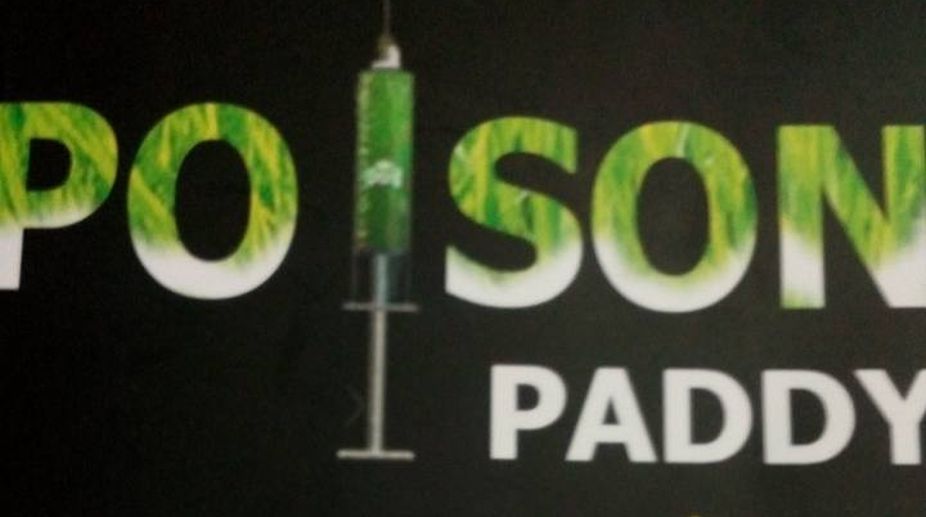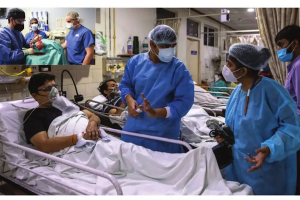Rinita Mazumdar’s debut novel, Poison Paddy, has a provocative title. The novel tries to negotiate the political, social, cultural and subjective complexities that define the border of Bangladesh and India and more specifically, West Bengal. It is as if a pair of Siamese twins have been surgically separated and then expected to continue as they were when conjoined. West Bengal is the highest producer of rice in India, and the process of harvesting and production of rice, nabanna, constitutes an integral part of the gastronomic culture and agriculture of West Bengal.
Mazumdar exposes and critiques the poison vitiating the lush and fertile natural environment of Sutia, a border district, as agricultural work and human violence unleashed by power groups and power politics are juxtaposed in the narrative. The novel describes how women are raped, mutilated and murdered, not because they are a threat to power, but in order to exemplify what power in performance can destroy with relentless cruelty, callousness and coldblooded calculation. The novel is based on the author’s research in the area and her surveys, interviews and case studies form an integral part of the narrative which targets consciousness-raising. The deeply emotive ending of this debut novel is remarkable.
There are many graphic descriptions of rape in the novel, ranging from the rape of young girls to the rape and murder of married women and mothers. Most of the incidents and episodes are knitted together from the point of view of the young-adult student protagonist, Diya. Diya travels from Sutia to Calcutta and then to the US for higher studies. Diya’s various physical, emotional and social journeys as well as her return after three years to the challenges of Sutia are mapped as physical and cultural migrations, a journey of discovery, self-discovery and introspection. In fact the author uses the signifier “migration” for each phase of physical and cultural transition —Sutia, Calcutta and the US.
Frustration, disillusionment and emotional crisis as well as kinship bondings and snapping of bonds are the shocks absorbed by Diya in her life-journey that range from intellectual curiosity to intellectual maturity and mellowness. The irony of socialism in theory and practice, ideology and the ground realities, the limitations of organised religion, the consistent victim status of women under all administrations and strained emotional relationships, are some of the problematic issues embodied through Diya’s multiple relatives, friends and acquaintances.
Mazumdar is now a resident of New Mexico, in the US. She travels at least once a year to her home city, Calcutta. She was born and educated in Calcutta, studied at Calcutta University and thereafter at the University of Massachusetts, Amherst, US. She teaches feminist philosophy and cultural studies at the University of New Mexico, Albuquerque. Though her novel is based on her research in the border area of Sutia, a hamlet in West Bengal, close to the Bengal-Bangladesh border, it tangentially negotiates both local and global locations.
The author’s efforts in fictionalising the casestudies and other documentary details are undoubtedly commendable. Sutia would have remained a completely unknown location for readers of English fiction but for Mazumdar’s efforts in showcasing the significance of the overtly quotidian yet inhuman and misogynistic life-experiences in a peripheral location.
However, a profusion of minor characters sometimes chokes the narrative as do the typos and long paragraphs. The list of characters that precede the commencement of the novel could have been placed after the concluding page. The grains produced by this scripted paddy field show promise but the lingering chaff could have been separated.
The reviewer is professor, Department of English, Calcutta University











